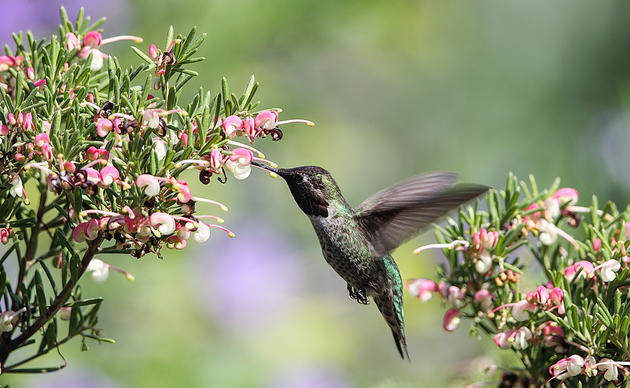In what will be a significant boost to its efforts to support California’s diverse array of migratory waterbirds, Audubon California recently received a $541,000 grant to protect breeding Western and Clark’s Grebes at four lakes in Northern California. The funding for Audubon California’s multi-layered project will come from the Luckenbach Trustee Council, which oversees the use of settlements arising from a series of oil spills that harmed grebes in the open ocean.
Audubon California will employ a variety of strategies to reduce the impact of human interference on breeding grebes at Eagle Lake, Lake Almanor, Clear Lake, and Thermalito Afterbay, which together support 76 percent of the total number of nesting grebes in California. The project will involve identifying the key threats at each site to the grebes, outreach and education to local communities, working with agency officials to optimize conditions for the birds, and extensive monitoring.
“In many ways, this is the perfect conservation project for Audubon California, in that we can employ our strengths at both the state and local level,” said Gary Langham, Audubon California’s director of bird conservation. “In this manner, we can provide strong science and outreach support with the local knowledge and expertise of our chapters and other partners.”
This approach promises to be particularly effective as each of the four lakes identified in the grant presents different challenges to Western and Clark’s Grebes. At Eagle Lake, for instance, the biggest threat to nesting grebes is from disturbance caused by boating, fishing and wind, while at Lake Almanor, the biggest challenge is declining water levels brought about in part from drawdown associated with power generation.
“What drew us to this proposal was that Audubon California was able to combine sound science with a strong plan for educating the public about the threats facing the birds,” said Jennifer Boyce, who represents the National Oceanic and Atmospheric Administration on the Kure/Stuyvesant and Luckenbach Trustee Councils. “Audubon’s local presence also gives them a real head start as far as knowing the issues at these lakes and making the right actions.”
There are three strong Audubon chapters located near three of the four lakes, including Plumas Audubon, Redbud Audubon and Altacal Audubon. Eagle Lake, Lake Almanor and Clear Lake have all been identified as Audubon California Important Bird Areas, meaning that they provide essential habitat for breeding, wintering, and migrating birds. The Clark’s Grebe is an Audubon Watchlist species.
“Although this project targets these four lakes in Northern California, we’re hoping that our work will help raise awareness about the grebes throughout California,” added Langham.
The S.S. Jacob Luckenbach sank near the Farallon Islands in 1953 while carrying more more than 450,000 gallons of bunker fuel. In 2002, state and federal officials identified the Luckenbach as the source of many mystery oil spills occurring periodically during winter storms. The spills resulted in the oiling of thousands of seabirds along northern California beaches from Bodega Bay to Monterey Bay for decades. Impacted threatened or endangered bird species included Brown Pelicans, Snowy Plovers, Marbled Murrelets, as well as waterfowl, loons, grebes, cormorants, gulls and shorebirds.
In 2002, the U.S. Coast Guard oversaw a $19-million effort to remove oil from the wreck and to seal it to prevent further oil releases. The federal and state trustees for the injured wildlife are the U.S. Department of the Interior (through the Fish & Wildlife Service and the National Park Service), the U.S. Department of Commerce (through the National Oceanic and Atmospheric Administration), and the California Department of Fish and Game Office of Spill Prevention and Response. Together, they form the Luckenbach Trustee Council, authorized to act on behalf of the public under state and federal law to assess and recover natural resource damages and to plan and implement actions to restore, rehabilitate, replace or acquire the equivalent of the affected natural resources injured as a result of a discharge of oil.
While the owners of the Luckenbach no longer exist, the Oil Spill Liability Trust Fund pays for oil spill cleanup and the restoration of impacted natural resources when there is no responsible party. The fund is sustained by fees from the oil industry and managed by the Coast Guard’s National Pollution Funds Center.
By Garrison Frost
Monthly Giving
Our monthly giving program offers the peace of mind that you’re doing your part every day.




